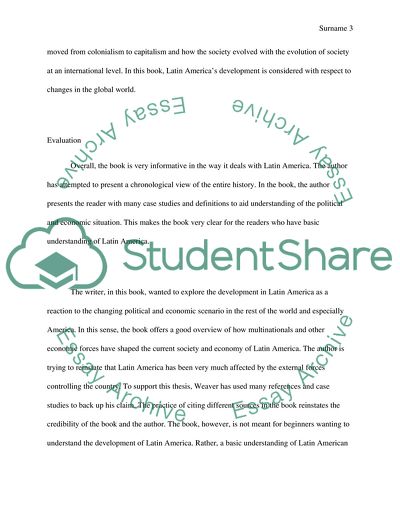Cite this document
(Political Economy of Latin America Book Report/Review, n.d.)
Political Economy of Latin America Book Report/Review. Retrieved from https://studentshare.org/politics/1831256-political-economy-of-latin-america
Political Economy of Latin America Book Report/Review. Retrieved from https://studentshare.org/politics/1831256-political-economy-of-latin-america
(Political Economy of Latin America Book Report/Review)
Political Economy of Latin America Book Report/Review. https://studentshare.org/politics/1831256-political-economy-of-latin-america.
Political Economy of Latin America Book Report/Review. https://studentshare.org/politics/1831256-political-economy-of-latin-america.
“Political Economy of Latin America Book Report/Review”, n.d. https://studentshare.org/politics/1831256-political-economy-of-latin-america.


